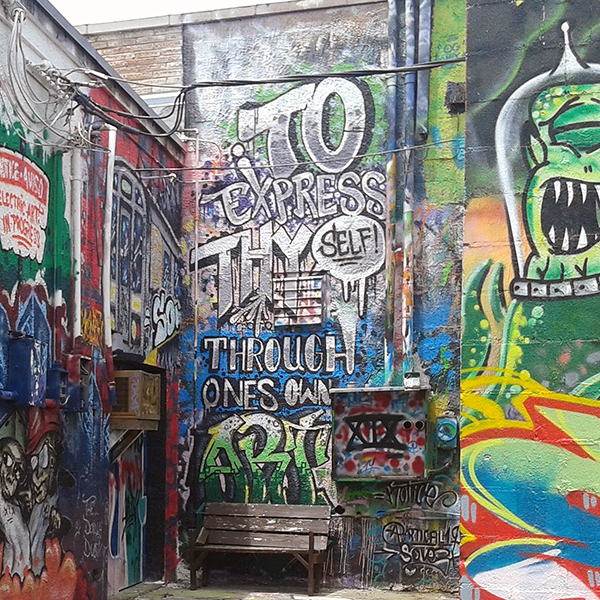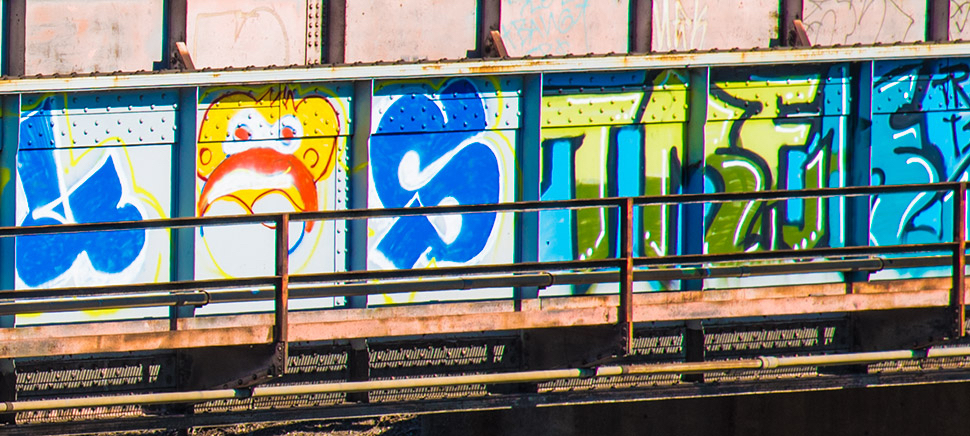Graffiti artists. Street taggers. No matter what you call them, you’ve likely seen their work on a building or a wall in North Texas.

Lynne Veiraitis. Photo Courtesy University of Texas at Dallas
Have you ever wondered what motivates a tagger to take a spray paint can in hand to create graffiti, and how taggers view the legality of their work?
Two criminologists with the University of Texas at Dallas’ School of Economic, Political and Policy Sciences interviewed 25 Dallas taggers to paint a picture about why taggers create graffiti and how they rationalize it.
Graffiti is a crime of vandalism in Texas that can range from a misdemeanor to a felony, based on the dollar value of the damage.
The study by researchers Lynne Vieraitis and Arthur Vasquez was published in the academic journal Deviant Behavior, and it found that taggers paint their graffiti to relieve boredom and stress, and to get recognition for their artistic talents, according to a UTD news release.
The taggers don’t believe what they do is a crime because they say they aren’t injuring anyone, and that the graffiti can be erased.
“If cities try to reduce graffiti by increasing the punishments, they are not actually addressing the underlying motivations of why they do it in the first place.”
Arthur Vasquez
Vieraitis is associate professor and program head in criminology at UTD, while Vasquez is a criminology doctoral student at UTD and a senior lecturer in criminology and criminal justice at the University of Texas at Arlington.
“By going out an talking with active taggers, we were able to gain better insight into why they do it. From a policy point of view, it is important to understand the taggers’ motivations,” Vasquez said in the release. “If cities try to reduce graffiti by increasing the punishments, they are not actually addressing the underlying motivations of why they do it in the first place.”
The researchers didn’t define tagging as associated with gang activity, but rather it is the tagger’s personal alias, acronym, or marking, the release said.
To find out more about the study on taggers, visit the UTD website here.

Researchers say tagging is a form of self expression in which the artist seeks recognition for their work or, possibly, bored.
For a daily dose of what’s new and next in Dallas-Fort Worth innovation, subscribe to our Dallas Innovates e-newsletter.






























